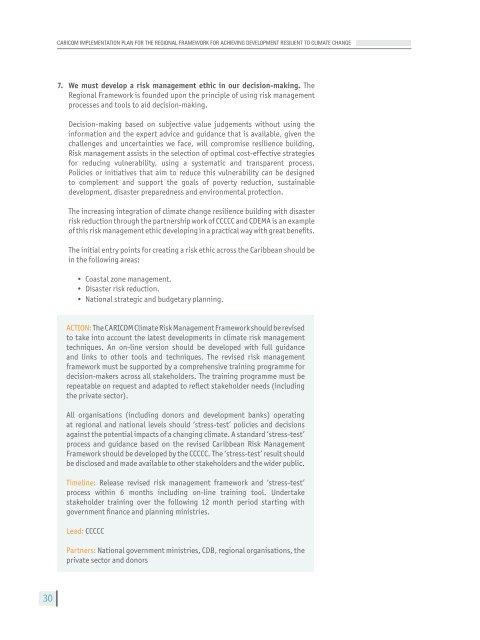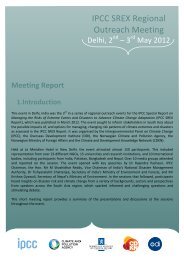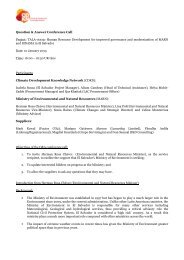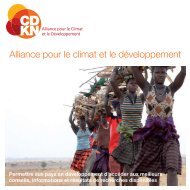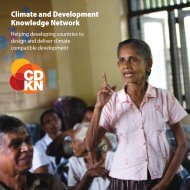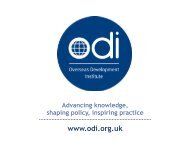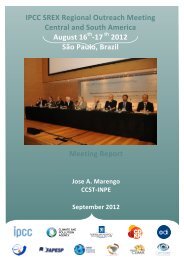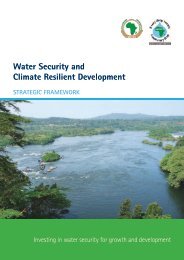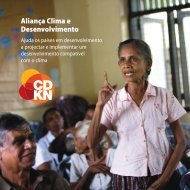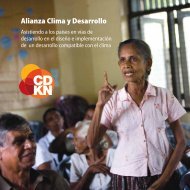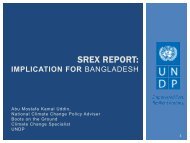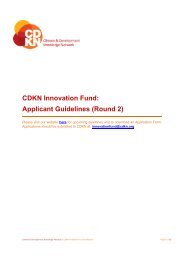Implementation Plan - CDKN Global
Implementation Plan - CDKN Global
Implementation Plan - CDKN Global
- No tags were found...
Create successful ePaper yourself
Turn your PDF publications into a flip-book with our unique Google optimized e-Paper software.
CARICOM IMPLEMENTATION PLAN FOR THE REGIONAL FRAMEWORK FOR ACHIEVING DEVELOPMENT RESILIENT TO CLIMATE CHANGE7. We must develop a risk management ethic in our decision-making. TheRegional Framework is founded upon the principle of using risk managementprocesses and tools to aid decision-making.Decision-making based on subjective value judgements without using theinformation and the expert advice and guidance that is available, given thechallenges and uncertainties we face, will compromise resilience building.Risk management assists in the selection of optimal cost-effective strategiesfor reducing vulnerability, using a systematic and transparent process.Policies or initiatives that aim to reduce this vulnerability can be designedto complement and support the goals of poverty reduction, sustainabledevelopment, disaster preparedness and environmental protection.The increasing integration of climate change resilience building with disasterrisk reduction through the partnership work of CCCCC and CDEMA is an exampleof this risk management ethic developing in a practical way with great benefits.The initial entry points for creating a risk ethic across the Caribbean should bein the following areas:• Coastal zone management.• Disaster risk reduction.• National strategic and budgetary planning.ACTION: The CARICOM Climate Risk Management Framework should be revisedto take into account the latest developments in climate risk managementtechniques. An on-line version should be developed with full guidanceand links to other tools and techniques. The revised risk managementframework must be supported by a comprehensive training programme fordecision-makers across all stakeholders. The training programme must berepeatable on request and adapted to reflect stakeholder needs (includingthe private sector).All organisations (including donors and development banks) operatingat regional and national levels should ‘stress-test’ policies and decisionsagainst the potential impacts of a changing climate. A standard ‘stress-test’process and guidance based on the revised Caribbean Risk ManagementFramework should be developed by the CCCCC. The ‘stress-test’ result shouldbe disclosed and made available to other stakeholders and the wider public.Timeline: Release revised risk management framework and ‘stress-test’process within 6 months including on-line training tool. Undertakestakeholder training over the following 12 month period starting withgovernment finance and planning ministries.Lead: CCCCCPartners: National government ministries, CDB, regional organisations, theprivate sector and donors30


